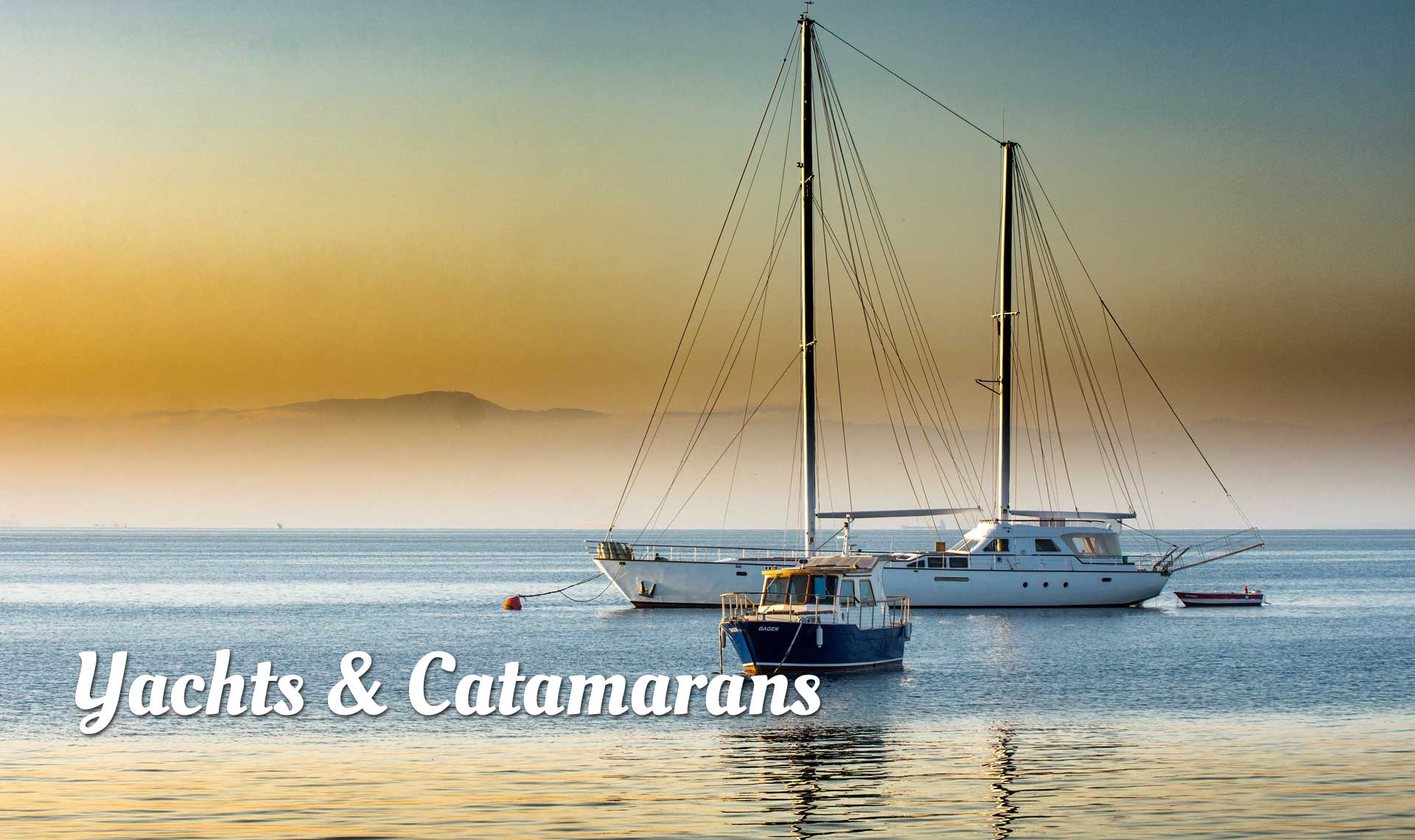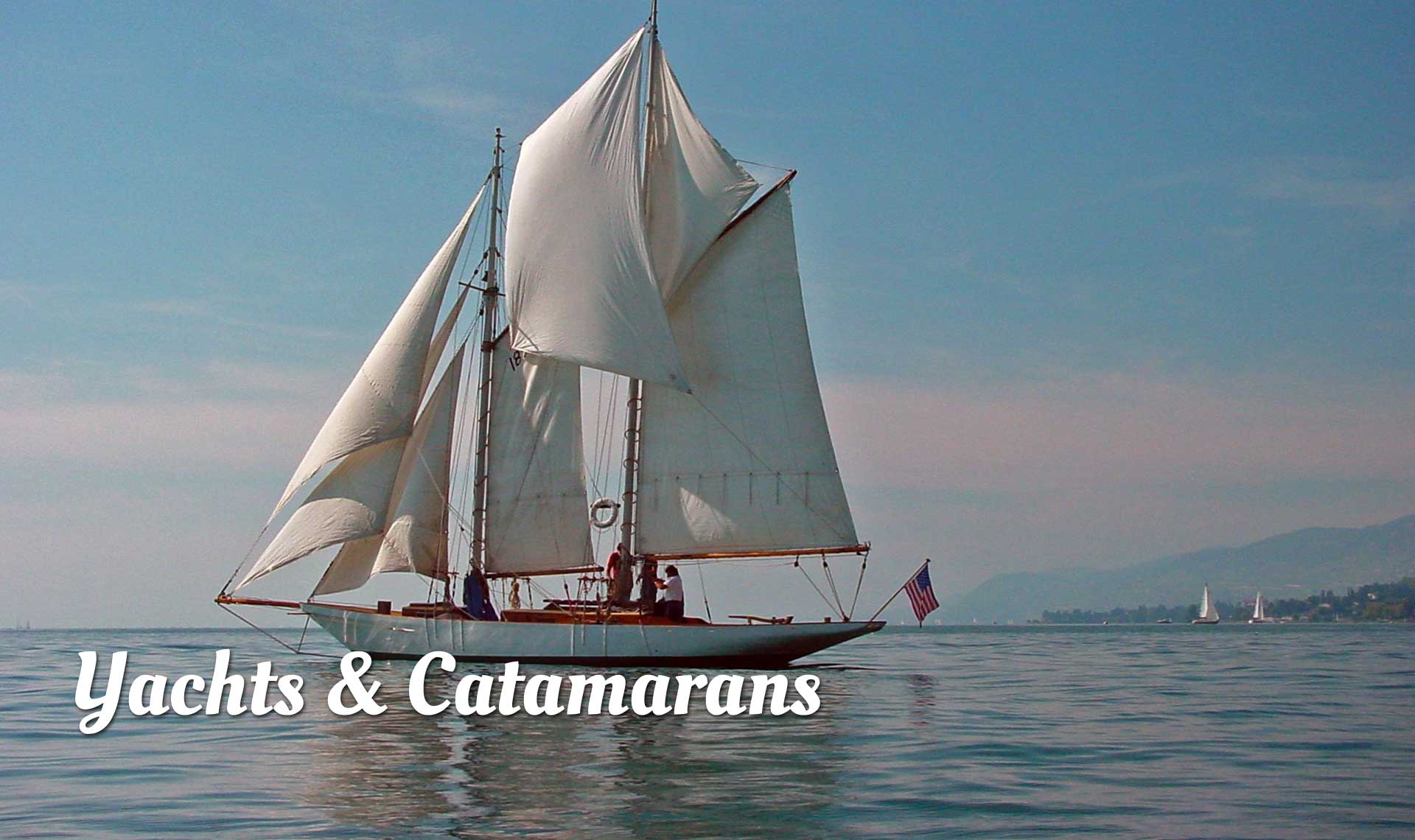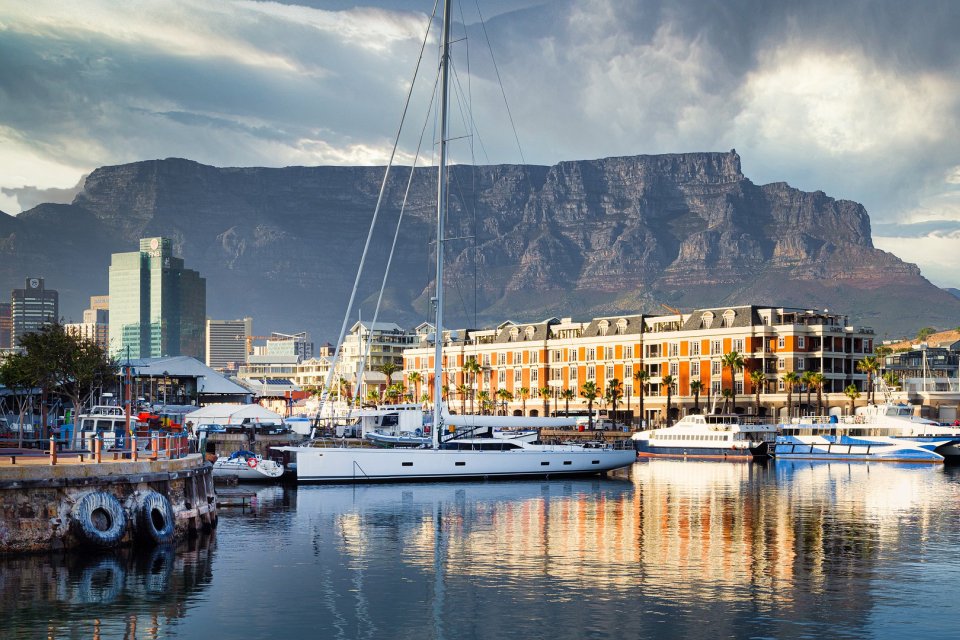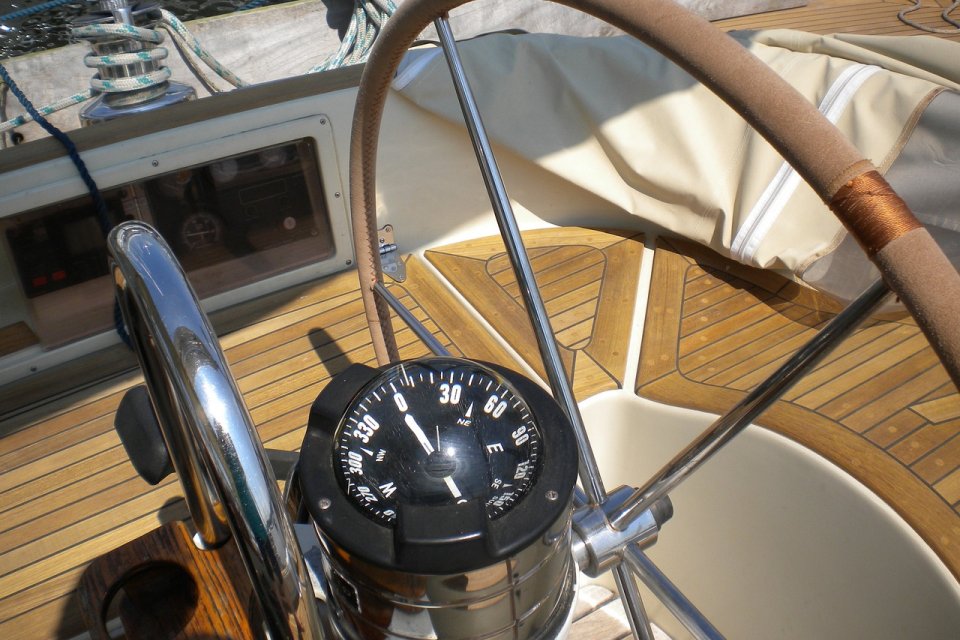Yachts
Yachts are typically single-hulled (monohull) sailboats or motorboats designed for recreational and luxury purposes. The basic components are a mast to support the sails, sails to catch the wind, a keel to stabilise the boat, and a rudder to change the boat's direction.
They come in various sizes, from small sailing yachts with basic overnight accommodation for a few people to large, luxurious super-yachts with numerous cabins, amenities, and crew.
Yachts that have encapsulated and lifting keels, deck saloons, or a pilot house are for comfortable sailing. For racing, deep bulb keels and smooth decks, either way, simply enjoying time on the water.
Catamaran
Catamarans are multi-hulled boats with two parallel hulls connected by a bridge deck or platform.
Catamarans are known for their stability and speed, thanks to their wide hulls. It makes them popular for various purposes, including leisure cruising, racing, charter vacations, and expansive decks ideal as a fishing boat.
They can be sailing or power catamarans, and an engine in each hull makes them very manoeuvrable.
Catamarans often have more deck space and interior room than monohull yachts of similar length.
Key Differences
Stability
Catamarans are known for their stability due to their wide hulls, while a monohull yacht can heel or tilt more.
Speed
Catamarans are often faster than monohull yachts of the same size because of reduced hull resistance, and in comparison, they are much lighter boats and do not need a weighty keel.
Interior Space
Catamarans generally offer more interior and deck space, making them suitable for larger groups and the charter market.
Cost
Catamarans are more expensive than monohull yachts of similar size due to their advanced design and features.
Choosing between a yacht and a catamaran depends on your preferences, intended use, and budget. Yachts are traditional and luxurious, while catamarans are modern, stable, and spacious, making them suitable for various activities on the water.
Yachts & Catamarans for Sale Guide
The Yachtsman's Guide to Buying a Boat
Buying a yacht can be a thrilling yet complex experience. We have designed this guide to simplify the process by breaking it down into manageable steps, ensuring you make an informed decision.
Determine Your Budget
Initial Cost: Includes purchase price and any taxes or registration fees.
Annual Operating Costs: Fuel, Maintenance, Insurance, Marina Fees, Waterway’s Licence.
Financing: Cost of a mortgage or loans.
Travelling: The annual cost of travelling to and from your boat.
Type of Yacht
Yachts can vary in different forms and sail configurations from Ketch Rig to standard Bermudian Rig. Keel configurations are different with the all encapsulated keels to deep bulb keels and twin keels and drop keels. Your yacht can be slim racing yacht to the wider beam cruising yacht all these configurations. Are you an ocean sailor or coastal one? Dutch sailing barges are graceful and is an ideal floating home.
Living aboard
Are you going to live aboard permanently, just for the summer months, or just occasional cruising? If living aboard permanently consideration should be given to the type of boat, a steel yacht can be fully insulated, with double glazed windows and doors, and heating systems, very comfortable in the winter, not necessary if you are summer cruising only.
Your cruising Yacht
Having guests aboard is a great social event. When you have guests aboard to stay consideration should be given as to the sleeping arrangements and toilets (heads) will they snore, and might have to use the toilet throughout the night. When planning your new yacht it is ideal, if your budget allows to buy a yacht where there are after and forward cabins both with toilets, your toilet has the shower which all can share.
Where am I going to keep my yacht - very important question?
In a Marina your yacht is secure and easily accessible and with all the utilities alongside, very convenient. Some marina’s offer a lift out service in the winter into their secure pound. In some cases owning a yacht means a flight or long drive to the marina; the marina manager can be contacted so that work can be carried out in your absence, including lifting back in to the water and securing your boat alongside. Normal winterisation and de-winterisation can be done so that your boat is ready to go when you arrive.
Buying a new yacht
Buying a new yacht offers the latest technology, a very useful warranty, and the opportunity to customise your yacht during the build process. This comes at a higher cost than buying a used one, however depreciation may occur when selling.
Buying a used yacht
Buying a used yacht is more affordable, less depreciation, layout could be appealing: however, there are fewer customisation options and there could be unknown mechanical defects.
The ‘Yacht’s for Sale’ process starts here.
You could be buying from a Yacht Broker a Private Seller, an Auction or direct from the Builders (with a warranty). The process for all of them is basically the same except for the Auction where the yacht is sold as seen. The sales contract known as the ‘Bill of Sale’ is signed by all parties and a returnable deposit is paid to secure the boat for a given period of time, generally ten days but can be more if a surveyor is not available. During this period a Survey and Sea Trial is carried out, paid for by the buyer.
The Survey and Sea Trial
A Professional Survey is essential when buying a used yacht to check for structural integrity, mechanical condition and to satisfy your insurance company. The Sea Trial is to test the yacht’s onboard propulsion and steering systems, and performance at sea whilst under sail.
The Final Price
This is the time for negotiations on the price, and anything in the sea trial or survey report that needs attention, this is discussed and a settlement figure agreed or not, as the case maybe.
Bill of Sale
The Bill of Sale should be carefully read to check all necessary details, one item to add and that is to check there are no outstanding debts to the boatyard or marina. The title is transferred and Registration documents completed.
Yacht Insurance
Don’t forget to insure your new asset, fully comprehensive is the best. Please read our section on the home page covering all forms of boat and yacht insurance.
Additional Resources to help you
There are online Discussion Groups to connect with other boaters for advice and experiences. Read reviews on different boat models and brands, visit Boat Shows where you can view a vast selection of boats. Have you considered renting a yacht for a holiday to practice your driving and sailing skills and ensure you are making the right decision to buy your own yacht.
By carefully considering your needs, thoroughly researching and following these steps, you can make a well-informed decision and enjoy your yachting experience to the fullest.
Happy Sailing!

Yacht and Catamaran Servicing
Keels
Two keel configurations, the encapsulated and fin (bolted keel) are covered by our Maintenance Programme. Both keel types after grounding can have their own special damage related problems. The hull areas around these keels need to be inspected for stress cracks which can be up to the waterline. A grounding incident inspection report has been developed by imardex-marine to cover this.
Sails
General maintenance includes inspecting areas suffering from UV and chafe damage, checking stitching especially around the clew, tack, and top of sails, around cringle points, and batten areas, also on the plan, cleaning drying and storing of sails.
Rigging
Rigging also forms part of the pre-sea check list. Maintenance of the rigging includes standing rigging and running rigging. Standing rigging - includes stainless steel rod and flexible wire rigging, swages, bottle screws, toggles and clevis pins. Running Rigging - halyards, sheets and lines, blocks and tackle.
Spars
Included in the Maintenance Plan are shroud and spreader root connections, mast head and foot, through deck connections and partners. An in mast electrical wiring inspection, mast, boom, gaffs, bowsprits and spinnaker poles all form part of the programme.
Deck Equipment
All deck equipment is covered by our Maintenance Programme including winches, genoa tracks, travelers cars, jamming cleats - clam & cam cleats plus fairleads and safety line deck connections.
Yachts & Catamarans - Fire & Safety Equipment Maintenance
Boat Safety and fire maintenance practices are essential for the well-being and safety of your boat and crew.
In many countries the authorities are looking for paperwork showing test certificates and expiry dates for fire and safety equipment, VHF and AIS certification, plus LPG testing. These are systems covered by imardex-marine’s Maintenance Programme.

Yacht - Maintenance Programme
It is a globally accessible Maintenance Programme designed to suit the individual needs of owners, skippers, and those responsible for the maintenance and operation of their yachts or catamarans.
Our programme covers the mechanical, electrical, domestic, fire and safety systems. It automatically resets the task periodicity when the maintenance has been carried out.
Maintenance Plans
Three core plans – The Primary Plan covers all the mechanics of a boat from the fuel tank to the propeller and takes priority over all other plans. The Primary Drive Plan is the drive system for your boat – both these plans include the critical spare parts list. The Secondary Plan covers the auxiliary, domestic, and ancillary systems.
Maintenance Tasks
The tasks are adapted to a vessel’s needs and should help those new to boating, and those who prefer to do things for themselves and only occasionally look to the boatyard for assistance. Either way, an owner is encouraged through our programmes to manage a variety of maintenance tasks, thus understanding better the systems on their boat.
Maintenance Schedules
Maintenance Scheduling is a way to help the planning of maintenance. Yearly monthly, weekly, daily, and even hourly checks form part of the maintenance schedule. Flexible scheduling has been designed which can be readily adapted to a cruising programme, and periods alongside. We find that leisure boat owners will set their maintenance at the beginning or end of the cruising season.
The Membership Package
Please click through to ‘Membership Desk’ to check whether your vessel, engine and drive system are included
Membership is required to access imardex-marine’s maintenance database. To become a member simply click ‘Membership Desk’ and select to pay monthly or annually where you will benefit from a discounted fee.
Benefits of Membership
At imardex-marine we expect that the membership and the use of its maintenance programmes will bring the following benefits:
- A safer boating experience for crew and passengers
- Increased operational efficiency and fewer breakdowns when underway
- Reduction in the general running costs
- Longer life expectancy of machinery
- Greater understanding and knowledge of the systems on your boat
Boat Insurance
Please click here to read our Boat Insurance information.
Full Check List - Boat Information Directory
Pre-Departure Checks - A special checklist identifies the necessary safeguards to be undertaken prior to departure. It is supplemented by a list of checks and helpful hints to be followed when underway.
Winterising - A guide and checklist available for winterising your Main Propulsion, Auxiliary and Domestic Systems.
Boatyard Work Guide and Check List - A comprehensive useful guide and checklist, prior to a boat yard starting work on your boat.This information has been put together with the help of the imardex-marine team and members who have many years of experience in dealing with boatyards and marine workshops.
Action after Grounding - A check list to assist the boater through a grounding scenario, and what to look for when inspecting keels, rudders and hull section, after such an event.
Back up and support from the imardex team
The imardex team is available to answer any queries or problems you may have, please send an email to This email address is being protected from spambots. You need JavaScript enabled to view it. with your telephone number, and a brief description of your query.
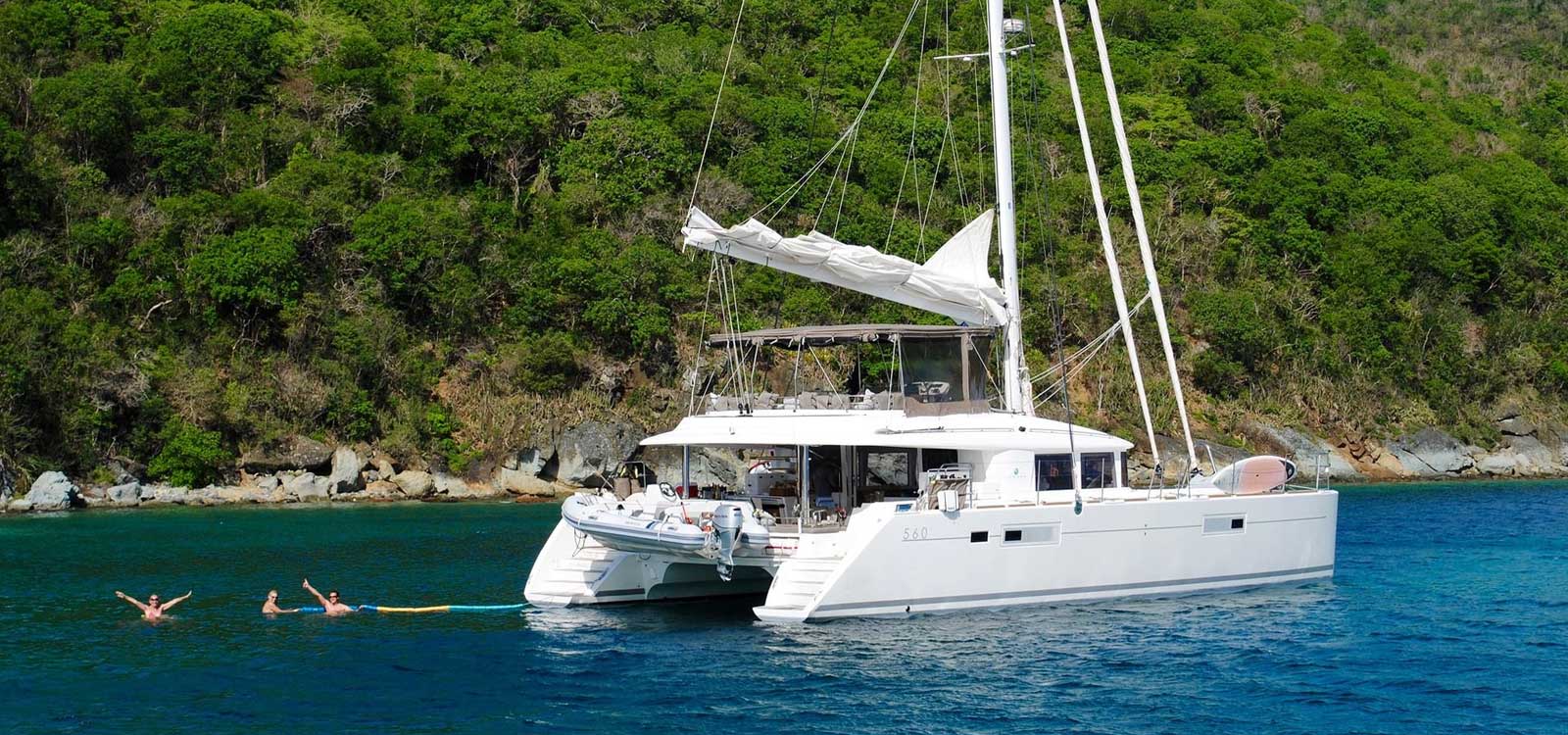
Miscellaneous Information
New Developments
Boat Shows and Show Boats
A directory of Boat Shows around the world for 2025/2026
Electric & Hybrid Boats
Imardex-Marine has outlined a brief summary of this new form of boating.
Emission Control & Waste Management Guidelines
This new section deals with 21st Century environmental issues.
Boating Holidays
Boating Holidays with some very interesting destinations - 2025/2026
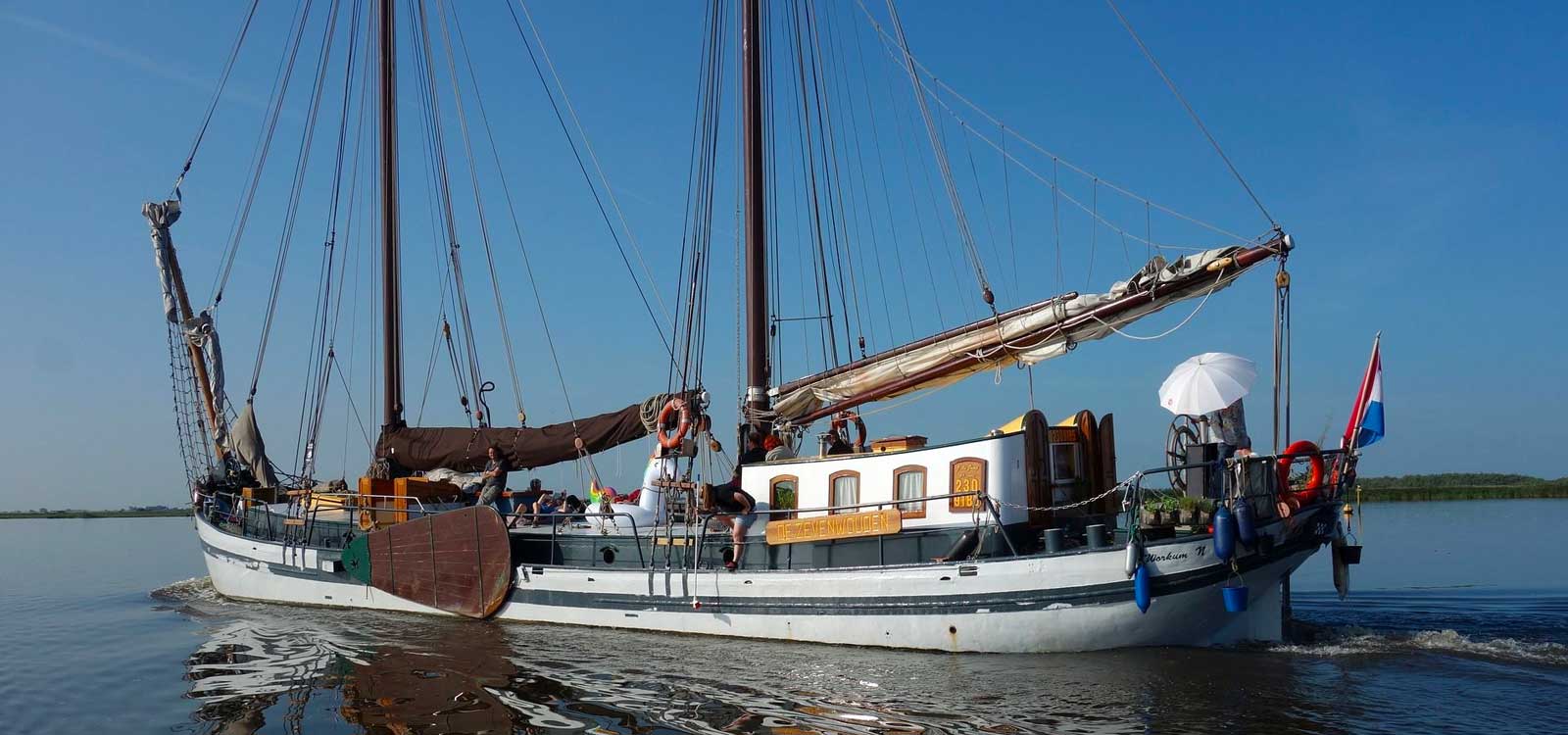
Non-Destructive Testing & PTFE Spray Lubricant
Two Maintenance products that could be useful to have aboard.
None-Destructive Testing (NDT)
Spars and standing rigging connections can be inspected for hairline cracks, which are not visible by the naked eye by using the None-Destructive Testing (NDT) technique.
There are two types of NDT testing systems available for the yachtsman, Ultra Sound which is very effective but needs training to understand the kit and resulting data.
A much simpler technique is the Dye Penetrant Crack Detection System which comprises of three aerosol sprays, a cleaner, the dye, and a developer. Follow instructions carefully and photograph the results, cracks will show up as a distinctive red line. Also ideal for checking cracks in solid stainless-steel rigging, chain plates and toggles, masts and booms where there could be areas of stress related cracks behind tangs, spreader roots, and connections. Particularly test the area around the foot of the mast.
PTFE – Spray Lubricant
Regarding sheaves, cars and travelers, winches (not the greased areas) furling gear etc. PTFE spray is recommended, it does not a absorb dirt and dust and is ideal for the sailing environment.
The Modern Diesel Engine its Fuel and the Environment
Modern Diesel Engines
To reduce the increasing threat to the environment and global warming, the harmful emissions of diesel engines have to be reduced. The search for cleaner emissions has resulted in engine manufacturers redesigning fuel delivery systems to the cylinder. Common rail diesel delivery being one system. Injector pressures in the 70’s was around 300 bar (4,351 psi), today pressures are in excess of 2,500 bar (29,000 psi), this higher injection pressure is a key factor in reducing an engine’s untreated emissions. It also improves atomisation by having a better fuel air mixture ratio, meaning that optimum combustion is achieved giving enhanced power output and efficiency.
Fuel & Additives
To reduce harmful emissions from diesel engines, the sulphur content of diesel fuel over the last few years has been reduced from 500 parts per million to 15 ppm. This fuel is now known as ULSD (ultra-low sulphur diesel). This dramatic reduction has resulted in problems for manufactures and operators of diesel engines and diesel fuel distributors. There is a full programme of maintenance and preventative measures to combat diesel bug outlined in the members section, entry by subscription. Engine and Generator Lubricating Oils can be sent for testing, we can advise you on this.
Diesel Engines - Maintenance
We have designed a comprehensive maintenance programme to be followed by owners of marine diesel engines. Requiring only basic skills, this maintenance programme covers all the mechanical work to keep the engine in a seaworthy condition. It does not include tasks where rebuilding is required.
Modern Boat Engines & Drive Systems
Modern Boat engines have a higher power to weight ratio and are usually more reliable and cleaner than older engines. Many now have electronic controls to optimize fuel consumption and efficiency. Our maintenance plans reflect this increase in power, by the addition of rescheduled maintenance tasks.
Posted by : The imardex-marine team

